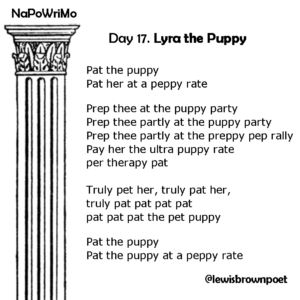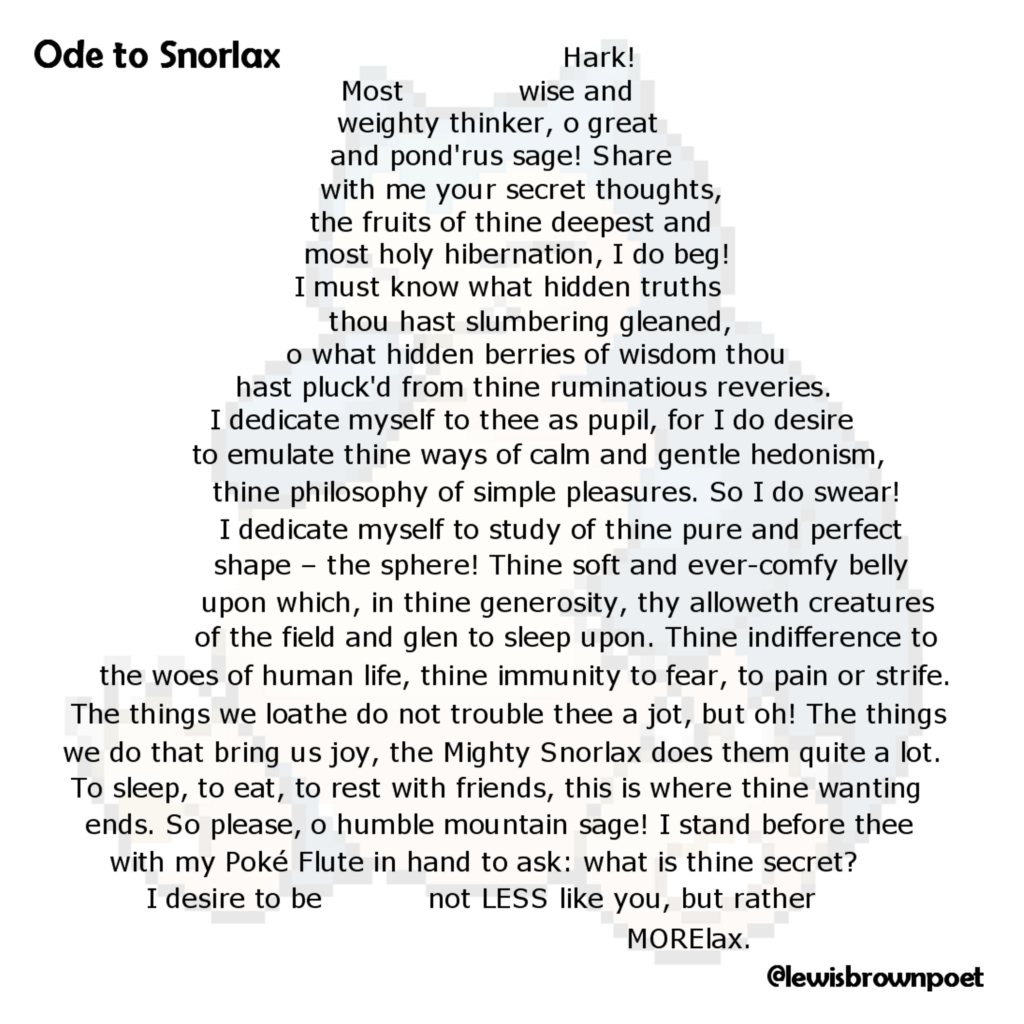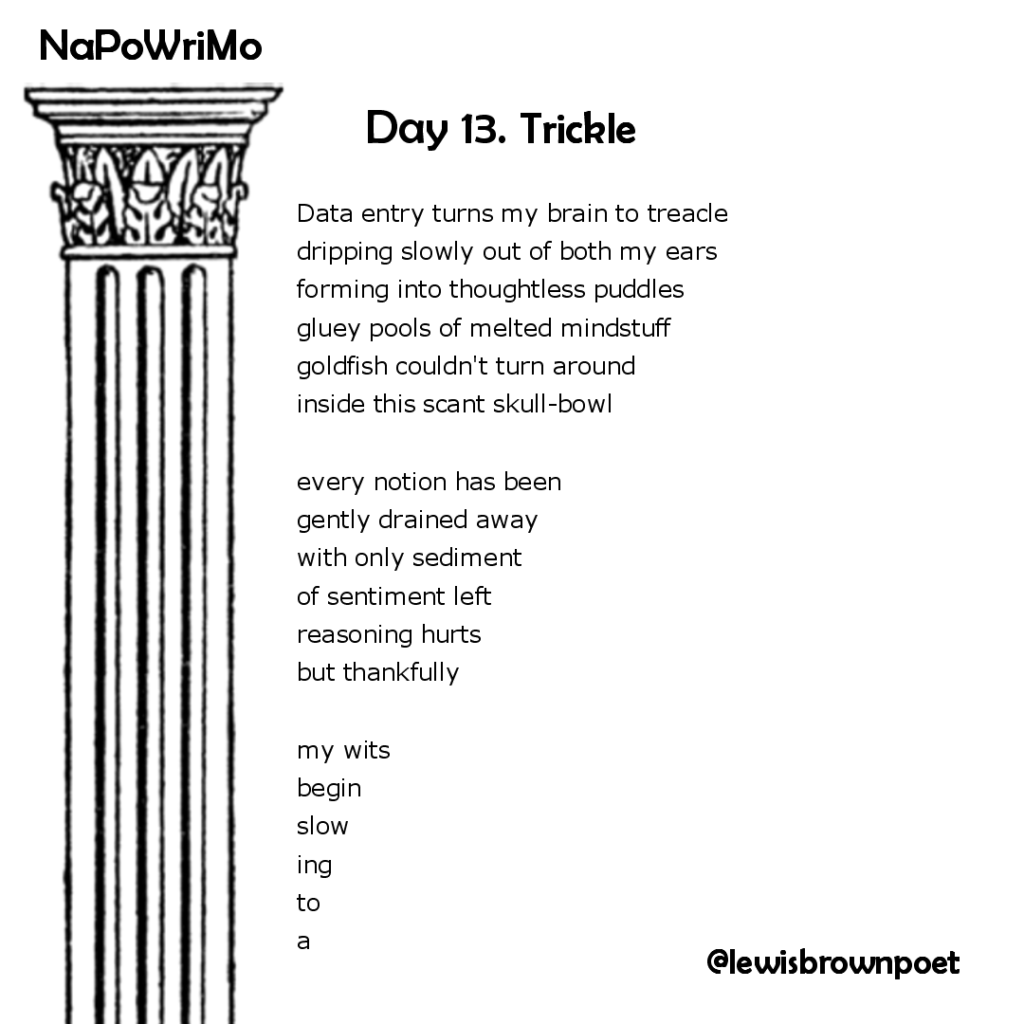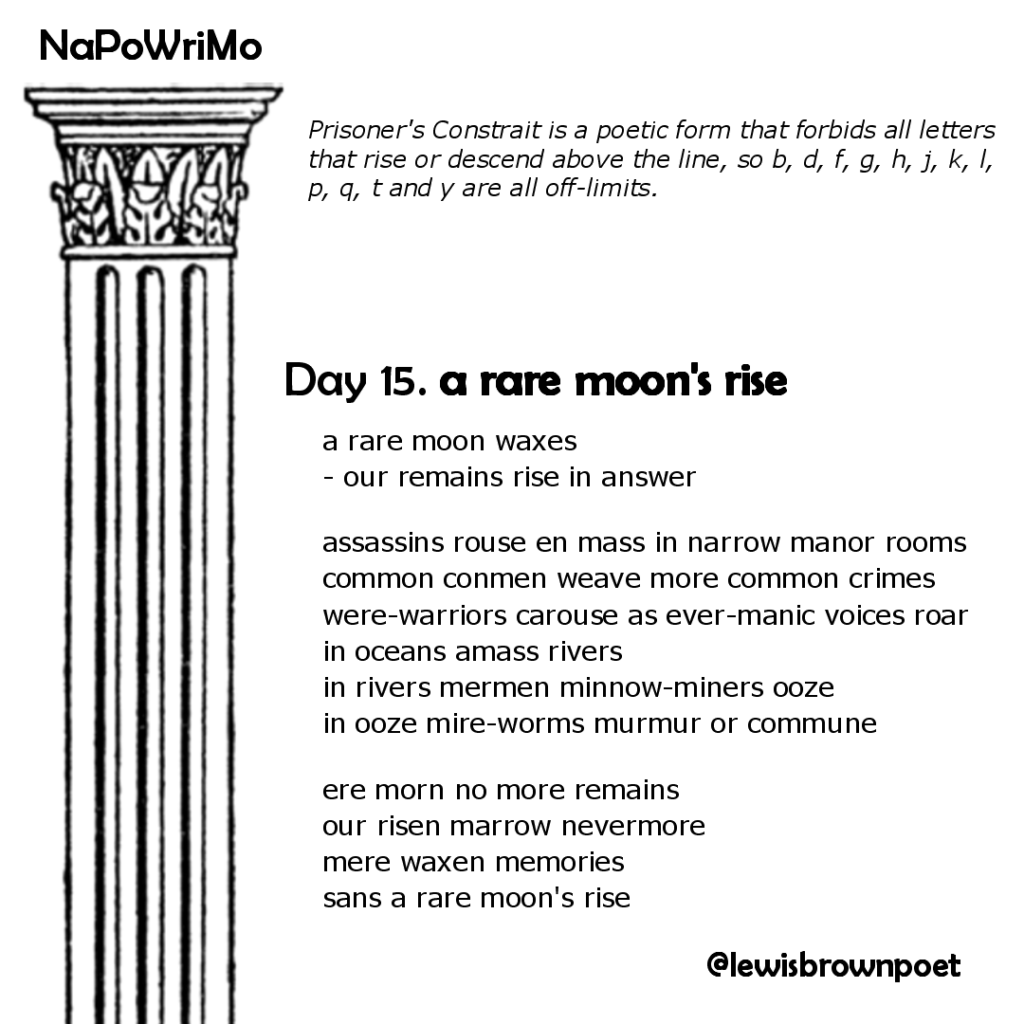Don’t worry, this isn’t a kink thing. Unless your kink is words? Don’t answer that. No, this is about simple writing exercises and how they’ve saved my writing practice multiple times.
Consider the humble acrostic. Remember acrostics? You might even have written one (or been forced to write one) in school. It’s a type of poem/word puzzle based on a single word, where each line begins with the next letter of that word. Here’s one I made earlier:
Possibility spaces are
Often far too massive.
Everything? Anything?
Make it smaller, please.
It’s basic, I’ll be the first to admit. More of a ‘thought’ than a poem, you could argue. But it took me just a few minutes to write it, and some days I sit down with the intent to write and struggle to produce anything for hours.
Some ideas just feel too big, it’s hard to get a handle on them, to find a way ‘in’. Or else the focus needed to write is crowded out by the pressures, anxieties and distractions of the real world.
My solution? Constraints, the narrower the better. Constrain your topic; pick a single word to be your title. Constrain your writing time; try writing something, anything, in a strict 5 minute timeframe. Actually set a timer. For best results, do this simultaneously with another person (or tell someone you’re doing it); I find the accountability helps.
Constrain the words you’re allowed to use. Writing about your dog? See how far you can get using only the letters in their name. Stick to a rhyme scheme, meter or poetic form, even if you don’t usually write poetry. It’s fine if you cheat, or throw out the rules later and make it into a different kind of piece entirely. That means you wrote something.
Here’s an example. I wanted to write a poem about my parents’ new puppy, Lyra, but I couldn’t think how to start. So I wrote a poem using only the letters found in the phrase ‘Lyra the Puppy’ (this form is called a Beau Présent, or ‘beautiful in-law’):

You might not be that proud of it. That’s fine, you don’t have to show it to anyone. But it’s better to write something than nothing. Maybe you can refine it, develop it further, and there might be an idea or a turn of phrase that feels like it’s going somewhere. More importantly page isn’t blank anymore, and you might just be able to ride your newfound focus on to greater things.
I’ll admit this is half writing advice, and half ADHD productivity lifehack. Your mileage may vary depending on your neurotype, but in my experience most people get good results relative to the very small time investment. During the Spooky Poem Month workshops I had whole groups telling me how refreshing they’ve found it, and how satisfied they are with the shiny rough diamond of a poem that they somehow managed to produce from nowhere in less time than it takes to make a cup of tea. Acrostic and friends are like hackers from a 90s action movie; a few strokes on the keyboard, and you’re ‘in’.
And acrostics are just a basic example. There are endless poetic forms, and styles, and ‘writing games’ you can play. Concrete poems are written in the shape of their subject. The Golden Shovel is a fun one, because it gives you an easy way to engage with an existing poem (or saying, or movie quote). Rigid forms like villanelles can be difficult, but satisfying. And the limerick is unjustly maligned. Some of these may require a lot longer than 5 minutes.

There’s no shame in plundering good old Wikipedia for lists of writing constraints and poetic forms. And there was this group of French nerds in the 1960s who called themselves ‘Oulipo‘ (Ouvroir de littérature potentielle). They played around with tonnes of writing games, from the ‘Snowball‘ (in which the first word/line is one letter long and the next is two, and so on) to the ‘Beau Présent‘ from my first example, which honours a person by using only the letters in the name. It’s a deep rabbit hole if you want to go there (and I do! but I’ve written enough).
They’re also very useful if you’re attempting NaPoWriMo.


The point I’m trying to make is: don’t keep staring at the blank page. Don’t keep putting off that really killer idea you have because you don’t know where to start. Write something, anything, whatever it takes. Even if you have to set yourself some freaky constraints.
Even if it means starting with an acrostic.
